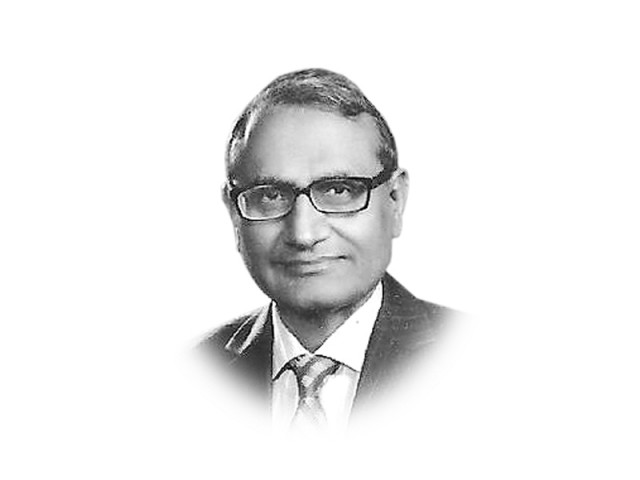Manifesto narratives
Parties spent time and money in preparation of their manifestos but have not changed their well-known narratives.

pervez.tahir@tribune.com.pk
1) We are the party of economic revival. We have the experience to carry it out without a kashkol. We know motorways. We know mass transit. All big cities will have bus rapid transit systems. Bullet trains will be next. Load-shedding will end in two years. Roti will be sasti. Peeli taxis and green rickshaws will provide self-employment. Three million jobs will be created for others. Nobody will be denied kidney treatment. Danish schools will provide the disadvantaged an entry into the elite. The country will be among the top 10 developed countries. It will have the highest laptops per capita in the world.

2) We are the party of change. Change means zero tolerance for corruption. Only those unspoiled by the past can spearhead this change. The 16 million youth between the ages of 18 and 25 are the obvious change-makers. Besides controlling the party, they get one-fourth of the tickets. Their presence in parliament will ensure justice for all, education for all and health for all. Those not in parliament will get 10 million jobs. Load-shedding will end in two to three years, corruption in three months. Our trust is in Allah, not America. With governance in the hands of those fearing Allah, institutions will be reformed on an emergency basis.
3) We are a party of the shaheeds, who were martyred for trying to bring about a change. They introduced land reforms, which were stopped by the Shariat Court. They were working to secure roti, kapra aur makaan for the poor, but BB shaheed’s government was prematurely dismissed twice. In the past five years, the courts did not allow us to do much for the poor. We provided thousands of jobs in the public sector enterprises, but the process was often disrupted by vested interests. Load-shedding would have ended, but for the courts’ intervention in the rental power projects. Massive floods forced us to concentrate on relief and rehabilitation rather than development. Still, we managed to increase support prices for farmers. Despite the fiscal cliff, the Benazir Income Support Programme took good care of the poorest of the poor. We stand ready to sacrifice our lives for the sake of the poor in the coming five years.
Practitioners of development would immediately recognise that the first narrative is a set of visible projects. The second narrative raises all the slogans that international donors and the NGO community love. They point to a set of programmes waiting to be converted into feasible projects. The last narrative is a lament. Neither are there any projects, nor programmes. All three lack a plan. As usual, policy will be the job of the generalist bureaucrats, whose reform has brought the system to its wit’s end.
Published in The Express Tribune, April 26th, 2013.















COMMENTS
Comments are moderated and generally will be posted if they are on-topic and not abusive.
For more information, please see our Comments FAQ